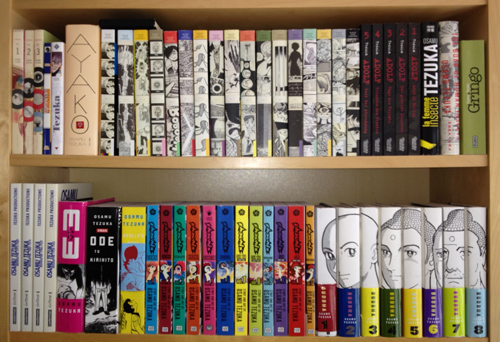learning
First Year at eBay
30.06.13 - 16:19 - Filed in: Software Testing

Exactly one year has passed since I joined eBay on July 1, 2012, and it has been quite a ride. Overall, the experience has been tremendously positive, mostly because the people I work with are both smart and a pleasure to spend time with.
Since my team is distributed at four different locations in Europe (Zurich, Berlin, Paris, London) and our projects mostly originate in San Jose, California, I am traveling significantly more often than in my previous jobs. For many people, air travel is tiring; I don’t perceive it as such. On the contrary, I enjoy the time on a plane because it allows uninterrupted time to read a book or do some thinking.
My team covers 12 European eBay sites in 7 different languages. In the past year, we have tested roughly 100 projects of features that were rolled out to the European sites. I am impressed by my team’s capability to handle all this.
There are many different approaches to testing within eBay, which often leads to intensive discussions with my colleagues in the US. In many ways, the misunderstandings are not unique to eBay. For some reason, there is a widespread view of dichotomous antagonism between manual and automated testing, whereby automation is regarded by some as a superior form of testing.
In these kind of discussions, I often appear to leave the impression of being against automation. Well, I am not. I am - however - against undirected/unreflected automation. I am against automation for the wrong purpose. I am against automation that is only done “because it is engineering”.
I am fiercely in favor of automation if it helps the team with their testing. I am forcibly in favor of automation, if it does the checking necessary to indicate regression effects. I am emphatically in favor of automation, if it does what automation does best - fast, repetitive checking of facts.
I’d be happy if one day the manual vs. automation discussion was no longer necessary.
Anyway, I am proud that my team does not quarrel with such lack of subtlety. They all have a sound mental model of how to do good testing. What more could I wish for? So, thank you team and everybody else in the organization I am in contact with for the splendid experience so far.
Retrospective 2012 - Outlook 2013
31.12.12 - 09:35 - Filed in: Software Testing

image credit: http://j.mp/YoyDvM
The year 2012 has been an exceptionally eventful and busy year. It was actually the first year I took testing really serious and it was also the first year I started to become active in the context-driven community. Since there are so many outstandingly smart people around, it is a highly stimulating intellectual experience. I am very happy to have chosen this path.
Education
The year started with a one-day workshop Critical Thinking for Software Testers with James Bach. James was in Switzerland in March for the Swiss Testing Day and it was a good opportunity to have him present his workshop at Phonak AG. Quite interestingly there were not only testers participating but a fair share of developers, too.
In May I participated in BBST Foundations, which was quite hard as it coincided with Let’s Test 2012. BBST courses are very time intensive and each participant can decide individually about how much effort to put in the course. I can recommend the BBST courses to anybody who has serious aspirations in software testing.
Shortly after I had started to work for eBay, I organized the famous Rapid Software Testing Course with James Bach. Additionally to my own team I invited testers from all around Europe from eBay companies to join us. We spent three wonderful days contemplating about software testing and the puzzles were one of the most refreshing part.
October/November was filled with BBST Bug Advocacy, which again was quite an experience, this time for personal reasons.
Conferences
The year started with Swiss Testing Day. At that time I was still a member of its Conference Board and since I was in charge for the Keynote Speakers, I invited James Bach to have one of the Keynotes. He was as energetic as ever and the following book signing saw all his Buccaneer Schoolar books being sold out in no time.
In May it was time to fly to Let’s Test. What a conference! I had my first introduction into facilitation with Paul Holland. I think that Let’s Test has established itself as being /the/ context-driven conference in Europe. You need to experience it to know what I mean. I am very much looking forward to its second edition in 2013.
The weekend before CAST we gathered for Test Coach Camp 2012 in San Jose. We were a small group and we intensively discussed coaching of testers. I think that coaching is an ability which will become even more important in the future.
Test Coach Camp was followed by CAST 2012, where I presented two Emerging Topics sessions: ‘Observational Proficiency’ and How to ‘Make ’em Read Books’. I also enjoyed facilitating some of the other tracks.
In October, there was the Dutch peer conference DEWT2 in Driebergen; 2 days of intensive discussions on context-driven topics. It was an intimate event with interesting people. And it was quite cool to have a lunch walk while discussing management styles with Jean-Paul Varwijk in the forest of Driebergen.
In November I unfortunately had to cancel my attendance at Agile Testing Days 2012, since my youngest son was in hospital.
The year finished with a one hour talk at the technical University ETH in Zurich, where I talked to software engineering students about how we test at eBay and I presented my general views on what skillful testing means.
Books
Not as much as I wanted. 2012 was so busy that my book reading suffered severely. I don’t like that and I have some plans to change that in 2013. However, five of the books that influenced my most in 2012:
- Wolfgang Metzger - Laws of Seeing
- Ludwig Wittgenstein - Über Gewissheit
- Robert A. Stebbins - Exploratory Research in the Social Sciences
- Paul Feyerabend - Against Method
- Robert D. Austin - Measuring and Managing Performance in Organizations
Job
Probably my most radical decision in 2012 was to change my job. I had been working for Phonak AG for more than seven years and when the opportunity arose to start with eBay, I decided to have a go. There was a huge number of applications for the position and I somehow managed to convince them that I was the right choice. I am very glad it worked out. Working at eBay is wonderful, there is a lot to learn and my flight schedule has become very busy. I was sitting on a plane on 16 trips and I travelled 53,318 km in total.
Skype Coaching
With a lot of help by James Bach and Anne-Marie Charrett I started coaching testers on Skype. I have done 30 one to two hour coaching sessions in 2012. Coaching testers is a perfect activity to learn more myself. Currently, my coaching activities are on hold because everything else is very busy and I cannot do everything.
Twitter & Blogging
I both value Twitter for the richness of personal contacts and loath it for its capability to steal my time. I still want to figure out how to handle that in 2013.
Blogging has been an outstanding experience. This is my fortieth blog post this year and I value writing because of its capability to sort my thinking.
People
One of the experiences I valued most in 2012 was to have met so many outstanding personalities. I hope to not have forgotten anybody.
Henke Andersson - Very upbeat, highly knowledgeable, and a fun person to spend time with
James Bach - Probably the most important person for my own testing career and a good friend, too
Jon Bach - It is great to have Jon around at eBay, every encounter has been filled with intensive testing discussions
Scott Barber - What a wonderful person with a refreshing energy level
Sigge Birgisson - Very kind and energetic person
Michael Bolton - One of the sharpest and most educated minds I know
Tony Bruce - I think I have met Tony at almost every event I went to in 2012
Fiona Charles - Fiona impresses me with her calm yet firm approach to things
Anne-Marie Charrett - One of my mentors in the domain of Skype coaching
Pascal Dufour - Very intelligent, should find more time to discuss testing with him
Henrik Emilsson - We look alike! Hopefully it works out with the visit to Sweden in 2013
Markus Gärtner - I am so impressed by Marcus’ productivity in all areas around testing
Julian Harty - I like Julian’s kind and helpful energy
Leo Hepis - Still remembering well his fantastic introduction into the world of Virginia Satir
Matt Heusser - Also one of those people whose energy level seems to have no upper boundary
Doug Hoffman - Thoughtful and wise. In a several hour discussion, I learned a lot about american corporate culture
Paul Holland - Facilitation is a demanding job. Paul knows everything about it. And he values a good bottle of beer. Or two. Or three.
Ola Hyltén - I am glad to have met Ola in person and I am so sad that he no longer is among us
Martin Jansson - What a fantastic Test Lab Martin built for Let’s Test. Hopefully again in 2013
Johan Jonasson - Without Johan, Let’s Test would not be here. So: Thank you Johan
Cem Kaner - If only I had a tiny slice of Cem’s testing wisdom
Maria Kedemo - Always a pleasure to chat on Twitter. Looking forward to your session at Let’s Test 2013
Ben Kelly - Nobody has a darker humor than Ben…Well, maybe Ben in combination with Paul Holland might top it
Michael Larson - One of the most friendly people I know. Meeting Michael automatically makes you more happy
James Lyndsay - Hopefully it works out with the Test Lab session at eBay in 2013
Iain McCowatt - If you want to have a deep intellectual discussion, Iain is your man
Meike Mertsch - It is very cool to see how intensively Meike pursues her path in testing.
Simon Morley - Simon is from England but since he lives in Sweden, he decided to speak Swedish. I am impressed
Duncan Nisbet - Very refreshing and he has a serious plan about becoming a world class tester
Ray Oei - I was happy to enjoy Ray as an instructor for both BBST courses
Alan Richardson - Besides being an excellent tester, Alan opened the fascinating world of hypnosis to me
Alexandru Rotaru - We should refreshen our plans for a session in Romania next year
Robert Sabourin - Glad to have received the Gallows Puzzle from Robert
Simon Peter Schrijver - Simon is a hard working tester and an outstandingly friendly person, too
Huib Schoots - If you want a good laugh, spend time with Huib. Test yourself if you can pronounce his name correctly
Aleksandar Simic - Very soft spoken and a lot of dedication for testing
Ben Simo - My main source for old and useful books. Has a fantastic sense of humor
Neil Thompson - If you think you can draw a complex diagram, meet Neil. He’ll top you
Jean-Paul Varwijk - Should there be a need to attribute ‘senior’ to somebody, Jean-Paul would the number one candidate
Zeger van Hese - There is still this fantastic picture of which I want to write a deep description of
Oliver Vilson - A man of honor. I deeply respect his drive to lead an independent test consultancy company in Estonia
Wade Wachs - If I had to label somebody as a ‘free thinker’, it would be Wade
Christin Wiedemann - Exceptionally smart person. And Christin shares my conviction that soap is always the better choice
Benjamin Yaroch - Somehow I rarely agree with Benjamin. Maybe that is the reason I value him
In Switzerland:
I also met some interesting Swiss testers in 2012. I think some of them will become more active in 2013: Sandro Ibig, Chris Glättli, Tomi Schütz and Simon Berner
Still to meet:
With some testers I only conversed electronically, but I am looking forward to meeting them one day, hopefully in 2013.
Jesse Alford - Jesse is both a skillful writer and a very sharp mind. He is new in the testing business. I am looking forward to meeting him at PSL in April 2013
Jari Laakso - Jari is the master of Twitter and I am looking forward to meeting him at Let’s Test 2013
Savita Munde - I have spent many coaching sessions with Savita. I hope her testing institute is doing well
Raimond Sinivee - Without Raimond, I would not have finished BBST Bug Advocacy. I hope he’ll be at Let’s Test 2013 so I can buy him a beer or two
Richard Robinson - Hopefully there is some opportunity to meet Richard next year. Very much enjoyed spending time with him during BBST Bug Advocacy
Outlook 2013
In general, I want to identify wasteful activities and stop doing them. These include - among others - watching TV series, reading news in daily newspapers and mindlessly goofing off on the internet.
Having experienced the power of writing, I intend to do it even more intensively. Since there are some excellent testing publications, I want to write articles for them.
In 2013 I want to establish myself as an expert in the domain of observation. I think that in the domain of software testing, it is a very important aspect that needs further exploration.
Since I am not a very good programmer, I want to spend significant time on getting better at it. eBay is the right place to do it, since we extensively use test automation.
I could imagine that /the/ highlight of 2013 will be PSL. Everybody I know who has been there, told me it was quite a life changing experience. Now I want to see it for myself.
On the conferences side I am most looking forward to Let’s Test 2013 and CAST 2013. I think that these two conferences are the best, the testing world has to offer.
BBST Bug Advocacy under Incredibly Difficult Personal Circumstances
23.11.12 - 22:54 - Filed in: Software Testing

image credit: http://j.mp/SfEvs2
BBST courses are known to be tough and they ask for a lot of quality reasoning. The workload should not be underestimated. After having spent a fantastic time during the Foundations course, I thought it would be a good idea to continue with one of the other two courses.
It appears that - although there is no requirement for it - most people choose Bug Advocacy as their second course (Why is that so?). I was excited, because I knew that some of the people I did the Foundations course with, would also join.
Bug Advocacy teaches you that writing bug reports is a persuasive activity, you need to make a case for your findings and convincingly explain, why a certain bug is worthy to be fixed. There are many dimensions to be considered.
Off we went into the first week.
It is advisable to carefully plan the BBST courses during times, which are not too busy with other obligations in order to free your mind for the course. This can be difficult as unexpected things can come up any time. In the first week I had a workshop with my team at eBay in Paris. Hard work, and very nice, because Paris - among other qualities - offers quite a variety of gastronomically refreshing opportunities.
I skipped the first quiz on purpose. Now, I admit that I am opinionated against the BBST quizzes. There are many excellent elements in the BBST courses, the quizzes are not among them. I regard them to be of minor value. Yes, they are meant to provide feedback on how well one follows the lecture videos, and they try to evaluate whether or not the students have understood what Cem was talking about.
My criticism on the quizzes is, that because of their nature - multiple choice questionnaires - they do not allow any subtlety and the answers are either right or wrong. I do not agree with that. Whatever answer one gives, if one is able to defend it with convincing arguments, it is not necessarily wrong.
When I came back from Paris, we were in full swing of the course and there were many exciting exercises on the subject of bug advocacy. What I enjoyed most, was the high focus on evaluating the quality of bug reports, and, on a further meta-level, evaluating the evaluations of bug reports. These are exercises, which help to become really good at arguing about the quality of writing.
Then, at the end of the first week, both our sons fell ill. Our older one (Marvin, 7 years) had a not too serious winter cold, but the little one (Nelson) - defenseless at his young age of 9 months - really caught something nasty. As it is, he acted as a biological petri dish, and so the germs multiplied. My wife and I hardly slept as he was coughing his way through the night.
In the following week he became weaker and weaker, and then it was shockingly clear to us that something serious was happening here. When we went to the hospital, he was immediately put into isolation and received additional oxygen and heavy medication. This is devastating to parents, as seeing ones own children sick is undescribably troublesome.
Bug Advocacy continued its course and in between hospital visits (my wife stayed there permanently), organizing the bigger one's school schedule, cooking breakfast/lunch/dinner, keeping eBay stuff up and running, I struggled to find time for the BBST exercises. I was close to quitting the course.
But I didn't until after 5 days in hospital the doctors declared that our son might have caught tuberculosis. Now I know what people experience, when they say that they lost the ground beneath their feet. It is a feeling of utter helplessness and complete despair.
It was already close to the end of the third week, I had under tremendous difficulties finished all my assignments and there was only the exam week to go. I just could not continue any more. It was too much to handle. I wrote on the moodle page that I stop the course immediately. I also cancelled my session at Agile Testing Days and every other non-family duty. We had other priorities now.
A couple of days later the suspicion of tuberculosis had blessedly not materialized and our son was getting better from day to day. Raimond Sinivee contacted me on Skype and and in a remarkably cautious and supporting fashion encouraged me to maybe still try to do the exam. I honestly had not taken into consideration to do that, but his message changed my mind. So that is what I did.
Our son was released from hospital after 10 days and now he is slowly recovering. It is great to see him smile and play again.
As I wrote in the introduction, BBST courses are hard and one should plan accordingly. And sometimes life just comes along and performs a test. I am not sure if I passed, but I am sure that the multitudes of pressures I experienced was close to what I can handle. I know my limits now.
What we can learn from the great Osamu Tezuka
28.05.12 - 21:11 - Filed in: Software Testing | Comics

(IMPORTANT: If you think comics are for children, please contact me on Skype before you continue reading. I’d like to have a clarifying chat with you. My ID: ilarihenrik)
Osamu Tezuka has drawn a lot in his short life that unfortunately lasted only 60 years. The mangas and gekigas above are from my Tezuka section and they represent only 8.2% of what he has created in his lifetime. Osamu Tezuka is one of the most incredible practitioners, not only by the standards of the manga industry.
We test software, Osamu Tezuka draws stories. Is there anything to learn from the great man? Or is this just some forced analogy? Maybe, maybe not. Let’s see if there is something we can make use of.
Do it every day
Osamu Tezuka has drawn every single day of his life. There was no day where he just sat around idly. He has drawn more than 700 tomes of manga with a total of about 150’000 pages and he was involved in countless films as well.
Shouldn’t we consider practicing our craft every single day? What have YOU done software testing wise today? Regular practice is the key to greatness.
Be a good story teller
Reading Tezuka makes you aware of his incredible story telling abilities. Some of his mangas stretch over more than 2500 pages (e.g. the great Buddha series — on the picture above on the lower right corner), and there are simply no passages that are boring. His stories are fantastic.
In order to practice bug advocacy, you essentially need to be a good and convincing story teller. Testing still often needs to be “sold”. The better you can come up with a convincing story of why it is important, the better your life as a tester will be.
Assemble people who help you
In order to keep up the pace, Tezuka had a big group of people who helped him with his stories by doing the blackening or the application of patterns or drawing the less prominent characters in the background. Tezuka acknowledged that he could not do everything himself and that it is helpful to have friends in his proximity who not only helped with the texturing but also criticized his work.
I believe that is something which makes the context-driven school of testing very strong as well. We tend to watch ourselves and give constant feedback while pushing ourselves to become better every day. It is a value we should be aware of.
To have some additional educational background is helpful
It might be a lesser known snippet of fact that Osamu Tezuka was a medical doctor. Although he never practiced as a physician, he has actually graduated as a doctor. This resulted in him being able to draw physiologically correct and fascinating details in some of his stories. I can highly recommend his collection of short stories about the outlaw doctor Black Jack. These short stories are outstanding. And they are outstanding because Tezuka included a second skill into his art. The fusion resulted in something far more remarkable.
That’s why it would make sense for us testers to educate ourselves in a wide variety of other topics. We should read about social sciences, immerse ourselves in ethnological methods of qualitative data gathering, psychology, cognitive sciences and of course mathematics should become our friends. And a lot of other matter, too.
Not being certified allows you to be great
Ha! Who would have thought that Tezuka is with us in this regard. Again, his outlaw doctor Black Jack is NOT CERTIFIED. And he does not even want to be certified because he has trained his skills to become the greatest surgeon on the planet.
Mushi Production
Well, the translation of the name of his animation studio - Mushi Production - is: bug production.
(An irrelevant yet interesting side note: While writing this post, my editor constantly tried to correct “mangas” to “mangos”, which I found hilarious because of my automatic spell checker’s complete unawareness of context)
What you Can Do if your Brain just Refuses to Understand
04.04.12 - 18:41 - Filed in: Software Testing

image credit: http://j.mp/HcxgtA
If you don’t live in a box shielded from everything I am sure this has happened to you: You tried to understand something and your brain just doesn’t get it. This may be uncomfortable for a context-driven tester as learning new things is quite essential to being context-driven.
There is a fabulously simple solution: Just give up
Assuming that you do not see this short and easy solution as a fit for your character disposition I guess we would have to go on with a longer elaboration.
Now, a common misconception is that your brain works like a hard disk. Here data, there hard disk, file -> transfer. And voilà, you’re set. Just not so.
If you don’t get something, then the following happens: As soon as your brain gets input the synapses start to fire happily their little electrons and look for pre-existing structures to attach your new input to. But in this case there just isn’t any place to be attached to because the input is new and different and weird and difficult and doesn’t quite fit anywhere. Then your brain becomes sad. No place to go. The new input is like sand in your hands. Your brain just lets it trickle through. And lost it is, but not forever.
Give yourself time
Think hard, then sleep, then wake up and get the solution for breakfast. Our brain acts in mysterious ways. We are not general statement solvers that always evaluate an input to a correct solution right away
Go for a walk and continue thinking
There is a whole thought school on walking and thinking called Peripatetic School. It originated with every tester’s old friend - Aristotle. Follow the link and read about them.
And with walking comes fresh air and you have the liberty to choose a good discussion partner and decide on where you want to walk. Isn’t that cool?
Not only the greek liked walking and thinking, Rousseau liked it, too. He might have had the idea from the greeks, though. But who cares where something comes from if it works.
Go ahead and try it out. Solutions may come flying towards you. Then you just need to catch them."I can only meditate when I'm walking. When I stop, my mind ceases to think; my mind only works with my legs." Jean-Jacques Rousseau
Visualize
Don’t just brood over something until your brains starts boiling. Extend yourself, take your hands and draw your problem. Make it visible. Look at it. Draw again. You “see” the great feedback loop you just created?
There are different forms of thinking. You are most likely to face problem solving in a verbal fashion. You just juggle words in you head and you try to sort them. But there are other, non-verbal forms of thinking, which are:
- musical
- kinesthetic
- mathematical
- visual
Anyway, visualization may greatly help with your thinking process.
Have a whiteboard/flipchart/blackboard close to you
That would be the preferred space to visualize. Their size helps you to get your problem “in your face”. It just pushes at you until you see a path through the jungle.
Discuss with friends
Explain your problem to a friend and get him/her involved in a lively discussion. The best discussion partner would be somebody with whom you tend to disagree. They obviously understand the world differently, otherwise you wouldn’t be quarreling constantly.
Just do
How much do you really need to understand to at least start with something? As mentioned in a previous post, true mastery comes through practice. Just start with doing and understanding will follow.
Prepare a presentation and talk to people about it
Take something completely new and unintelligeble to your mind and start making a presentation. Guess what, you learn with ultra-sonic speed. The outside pressure keeps you focused.
Write down what exactly you do not understand
Again a neat little feedback loop. Writing is reading your thinking. You might want to use the Phoenix Checklist. Search on the engine of your choice and you will quite easily find it.
AND MOST IMPORTANT:
Learn to feel comfortable with not understanding
You don’t need to fully understand everything. At least not immediately. If you want that, you will always remain in your comfort zone. The comfort zone is a very dangerous area. It is the little brother of mediocrity. Who has the aspirations to be mediocre? Anybody?
A little tautology here: Difficult things are difficult. If you don’t learn to be comfortable with the slow process of understanding difficult things, you most likely will abandon your pursuit of greatness. It doesn’t just happen overnight. You need to work for it. Start today.
(And tell me in the comments below how you face your difficult understanding problems, I am very much interested in how YOU do it)
There Are Two Sides to the Managerial Coin and this Analogy Is Worn Out Like your Testing Skills
02.02.12 - 17:01 - Filed in: Software Testing
You lean back in your expensive executive leather chair puffing your H. Upmann cigar smoke in the face of your subservient employees and then you laugh far too loudly while lifting your legs and placing your expensive bespoke brogues on your desk.
You have successfully changed sides. Yesterday you were a tester, now you are a manager of testers. Great, isn’t it? And while you indulge in complacency in your splendid new corner office, what might soon happen to your testing skills shall be exemplified with the following image:

It was in November 2007 when I was promoted line manager of my test team. We have four different roles: Testers, Test Engineers, Software Developers in Test and Test Managers. The size of the team has always been between 13 to 19 Testers. My team is great, I love them all. And being a line manager is very rewarding.
If somebody asked me I would say that I follow the Servant Leadership style. I am familiar with DISC (myself being a strong I and D with a significant share of C) and Process Communication Model (Base: Workaholic, Phase: Rebel). I concentrate on the “what” and I am agnostic about the “how”, “when” and “where”. I constantly try to keep on learning; currently I am an avid listener of the Manager Tools Podcast.
So, where is the problem?
There is a fundamental difference between being a tester and being a manager of testers. Given the size of your team is big enough, the line manager part of your job becomes a full time activity. Now, what does that mean? Well, if it is a full time job, then obviously you are no longer testing that much yourself, are you?
And what happens if you do not practice anymore? You become fat and ugly.
I don’t want to be fat and ugly. In the same fashion as many people start jogging after Christmas gluttony, I decided to start my own little jogging program. Only dwelling in propositional knowledge won’t make you better at all. These are some of the things I have started:
Here’s an invitation: If you are from Switzerland and you are serious about testing, please read on. And by “serious” I mean:
PLEASE do contact me, I want to talk to YOU. Let’s form a context driven school of software testing group in Switzerland. Let’s get better at Exploratory Testing. Let’s solve puzzles. Let’s challenge each other. Let’s become world class together.
You have successfully changed sides. Yesterday you were a tester, now you are a manager of testers. Great, isn’t it? And while you indulge in complacency in your splendid new corner office, what might soon happen to your testing skills shall be exemplified with the following image:

image credit: http://j.mp/wHvCiA
It was in November 2007 when I was promoted line manager of my test team. We have four different roles: Testers, Test Engineers, Software Developers in Test and Test Managers. The size of the team has always been between 13 to 19 Testers. My team is great, I love them all. And being a line manager is very rewarding.
If somebody asked me I would say that I follow the Servant Leadership style. I am familiar with DISC (myself being a strong I and D with a significant share of C) and Process Communication Model (Base: Workaholic, Phase: Rebel). I concentrate on the “what” and I am agnostic about the “how”, “when” and “where”. I constantly try to keep on learning; currently I am an avid listener of the Manager Tools Podcast.
So, where is the problem?
There is a fundamental difference between being a tester and being a manager of testers. Given the size of your team is big enough, the line manager part of your job becomes a full time activity. Now, what does that mean? Well, if it is a full time job, then obviously you are no longer testing that much yourself, are you?
And what happens if you do not practice anymore? You become fat and ugly.
I don’t want to be fat and ugly. In the same fashion as many people start jogging after Christmas gluttony, I decided to start my own little jogging program. Only dwelling in propositional knowledge won’t make you better at all. These are some of the things I have started:
- Regular Skype coaching sessions with James Bach (next session: tonight)
- Registered with uTest.com and started testing to reeducate myself (And they even pay you but I think I am going to donate the money to charity)
- Challenge my brain with Lumosity, Khan Academy and Code Academy
- Vowed I will submit session proposals to at least 3 conferences this year
- Try to learn from testers who are active on Twitter
- This blog is actually a result of my reasoning about testing (writing == reading your own thoughts)
Here’s an invitation: If you are from Switzerland and you are serious about testing, please read on. And by “serious” I mean:
- You regard testing as an intellectually demanding activity
- You are context driven
- You strive to become really good at software testing
- You value honest feedback
- You sneer at useless certifications
PLEASE do contact me, I want to talk to YOU. Let’s form a context driven school of software testing group in Switzerland. Let’s get better at Exploratory Testing. Let’s solve puzzles. Let’s challenge each other. Let’s become world class together.